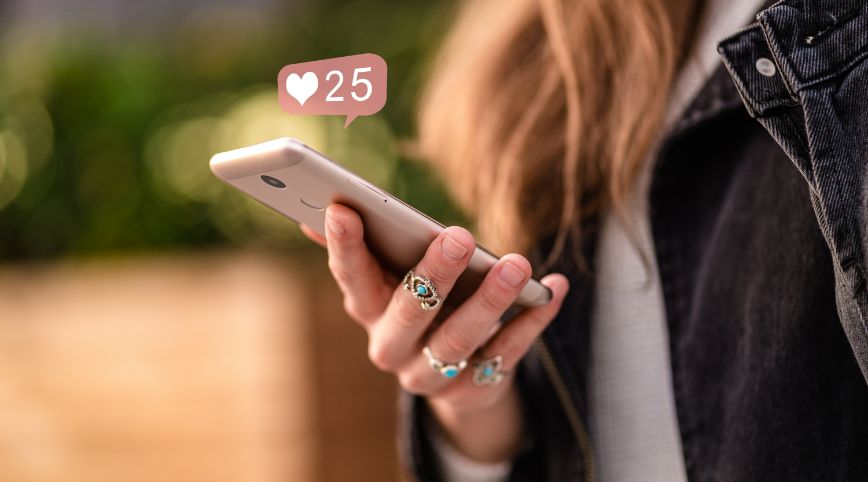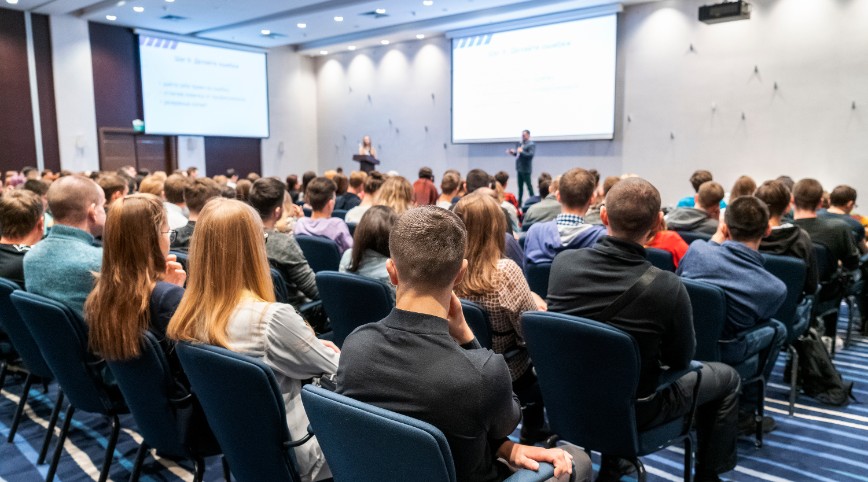June 18th, 2024 | Alex
A Complete Guide to Post Event Engagement
Live events are an integral part of creating memorable experiences that stay with people for the rest of their lives.
Whether that be a music festival or a corporate event.
These events have the power to touch people in many different ways. Sometimes they can trigger nostalgia, other times they can inspire and motivate you.
But what about when the event ends?
That’s where post-event engagement comes into play.
In this post, we’ll go over what post-event engagement is, why it’s important and an in-depth look at how you can implement it.

What is Post Event Engagement?
Post-event engagement refers to the actions and interactions that take place after an event has concluded.
This is usually done to maintain and enhance the relationship with all those involved with an event:
- Attendees.
- Speakers.
- Sponsors.
- Partners.
Many methods can be used when it comes to post-event engagement.
Which method you deploy will depend on a number of factors such as budget, goal, target audience etc.
Why Is Post Event Engagement Important?
Post-event engagement helps to extend the value and impact of an event long after it is finished.
It helps create a deeper connection with audiences and other important stakeholders.
Post-event engagement also allows you to gather valuable feedback, which can be used to refine and improve future events.
Engaging with attendees post-event keeps the event’s momentum going, maintains brand visibility, and builds a sense of community and loyalty among participants.
If your event is a reoccurring then this post-event engagement can keep you top of mind in your attendees.
This means that ticket sales could sell faster when it comes to the release date
A Guide to Post-Event Engagement
Immediate Follow-Up
Thank You Messages
Sending thank you messages is a vital component of post-event engagement.
It demonstrates appreciation and gratitude towards everyone who contributed to your event’s success.
This act of appreciation not only leaves a lasting impression but also increases the likelihood of future participation and support.
By thanking them, you show that you value their time, effort, and contributions, which can enhance their loyalty and advocacy for your events.
Tips for personalised thank you messages:
- Use the recipient’s name and reference specific contributions or moments that made their involvement special. This shows that the message is sincere and tailored.
- Send thank you messages within 24-48 hours after the event to show prompt appreciation.
- Share memorable moments or achievements from the event to remind recipients of their positive experiences.
- Invite recipients to stay connected, share feedback, or participate in upcoming events.
Surveys and Feedback Forms
Collecting feedback through surveys and feedback forms is essential for understanding the strengths and weaknesses of your event.
It provides direct insights from attendees, speakers, sponsors, and partners about their experiences, preferences, and suggestions for improvement.
This information is invaluable for refining future events, enhancing attendee satisfaction, and ensuring that your events continue to meet the needs and expectations of your audience.
Feedback helps identify what worked well and what areas need adjustment, enabling you to make data-driven decisions for better event planning and execution.
Tips for creating effective surveys and feedback forms:
- Limit the number of questions to ensure the survey is quick and easy to complete. Aim for a completion time of 5-10 minutes.
- Use a mix of multiple-choice, rating scales, and open-ended questions to gather both quantitative and qualitative data.
- Cover essential topics such as overall satisfaction, individual session feedback, speaker quality, event logistics, and networking opportunities.
- Offer incentives such as discounts on future events, free resources, or entry into a prize draw to encourage responses.
Engagement on Social Media
Contests
Contests are a powerful way to engage your audience on social media after an event.
They encourage participation, generate excitement, and can significantly increase your event’s visibility and reach.
By offering attractive prizes or incentives, you can motivate attendees to engage with your brand.
This can lead them to share their experiences and spread the word about your event.
Tips for running successful contests:
- Define the purpose of the contest, whether it’s to increase engagement, gather content, or boost followers.
- Make it easy for participants to enter by requiring actions such as liking a post, sharing, tagging friends, or using a specific hashtag.
- Offer prizes that are relevant and valuable to your audience. This could include event tickets, exclusive merchandise, or special experiences.
- Encourage participants to share photos, videos, or stories related to the event. This not only boosts engagement but also provides you with authentic content for future promotions.
- Clearly communicate the rules, deadlines, and selection criteria to ensure fairness and transparency.
Interactive Posts
These types of posts invite participation and can provide valuable insights into your audience’s preferences and opinions.
They also create a sense of community and dialogue, encouraging followers to interact not just with your content but with each other as well.
Tips for using platforms for interactive posts:
- Use the poll, quiz, and question stickers to create interactive and engaging content.
- Ask simple, relevant questions that prompt a quick response.
- Create fun and educational quizzes related to the event’s content.
- Use the question sticker to invite feedback or ask for suggestions for future events.
- Keep the engagement light and fun with polls related to the event’s theme or industry.
- Detailed Polls – Create multi-option polls to gather more nuanced feedback and opinions.

Long-Term Engagement Strategies
Follow Up Events
Follow-up events are crucial for maintaining engagement and deepening relationships with your audience.
They provide opportunities to build on the momentum of the initial event, offer further learning and networking opportunities, and keep your audience active and engaged.
Follow-up events can range from smaller, more focused sessions to large-scale gatherings, depending on your goals and audience needs.
Tips for planning successful follow-up events:
- Choose themes and topics that resonate with the interests and needs of your audience. Use feedback from the initial event to guide your planning.
- Consider a variety of formats such as webinars, workshops, panel discussions, networking meetups, and roundtable discussions to cater to different preferences.
- Plan follow-up events at regular intervals to keep your audience engaged over the long term. For example, you could schedule monthly webinars or quarterly workshops.
- Incorporate interactive elements such as Q&A sessions, breakout rooms, and live polls to foster participation and engagement.
- Involve speakers and partners from the initial event to maintain continuity and deepen relationships.
Community Building
A community provides a platform for ongoing interaction, support, and collaboration, enhancing the overall value of your events.
It creates a space where attendees can share experiences, exchange ideas, and stay connected to your brand.
Tips for using social media groups, forums, or dedicated community platforms:
- Utilise platforms like Facebook Groups, LinkedIn Groups, or Reddit to create spaces where attendees can interact and share content.
- Offer exclusive access to group members, providing them with special content, updates, and early invitations to future events.
- Host live Q&A sessions, webinars, or discussions within the group to keep the community dynamic and engaged.
- Set up dedicated forums on your website or use platforms like Discourse or Slack for more structured and topic-specific discussions.
- Create a branded community space that reflects your organisation’s identity and values.
- Organise virtual meetups, discussion groups, and collaborative projects to keep the community engaged and active.
Measuring Success
Metrics and KPIs
Tracking key performance indicators (KPIs) is essential for evaluating the success of your post-event engagement efforts.
KPIs provide quantifiable data that helps you understand how well your engagement strategies are performing and identify areas for improvement.
By setting and monitoring specific KPIs, you can measure the impact of your activities and demonstrate the value of your event to stakeholders.
Tips for monitoring metrics and using analytics tools:
- Establish clear objectives for your post-event engagement to determine which KPIs are most relevant.
- Choose KPIs that align with your objectives e.g. Number of views, likes, shares, and comments on event content (blogs, videos, social media posts).
- Leverage analytics tools to track and analyse your KPIs efficiently:
Adjusting Strategies
Collecting and analysing data is only valuable if you use the insights to refine and improve your engagement strategies.
By continuously assessing your performance and making necessary adjustments, you can enhance the effectiveness of your efforts and achieve better outcomes in future events.
Tips for identifying areas of improvement and implementing changes:
- Regularly review feedback from surveys, social media comments, and direct communications to identify common themes and areas where improvements are needed.
- Look for patterns in your data that indicate what is working well and what is not. For example, if certain types of content consistently receive higher engagement, consider producing more of that content.
- Focus on high-impact areas that can significantly improve attendee satisfaction and engagement. Prioritise changes that align with your objectives and available resources.
- Implement changes on a small scale to test their effectiveness before rolling them out broadly. Use A/B testing to compare different approaches and determine the best strategies.

Post-Event Engagement Strategies – Gala PR
Post-event engagement is a very important part of the overall event experience.
If you don’t get it right then you could be at risk of hindering your attendee’s experience of your brand.
GALA PR specialises in helping live events get more exposure and attention using innovative PR strategies.
We also deliver post-engagement strategies for our clients
Our effective PR strategies have worked with some of the biggest live event brands in the UK.
If you would like to work with us so you can gain maximum exposure for your live event then contact us today.